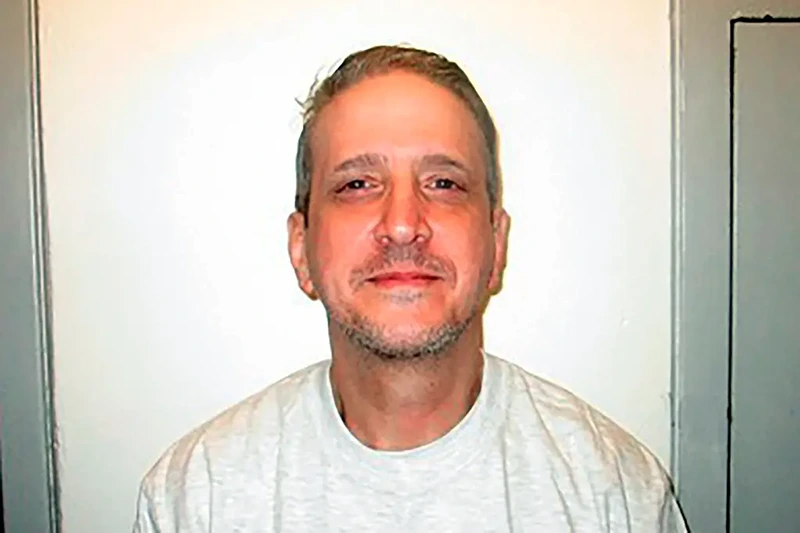

OAN Staff Abril Elfi
2:35 PM – Wednesday, October 9, 2024
The Supreme Court has appeared split over the Oklahoma death penalty case of Richard Glossip and his latest bid for freedom.
Advertisement
On Wednesday, the court heard arguments in Glossip’s death row case that has left his fate uncertain.
After being found guilty , Glossip was sentenced to death for the 1997 murder of Barry Van Treese, the proprietor of a motel. While everyone agrees that Glossip did not kill Van Treese, state prosecutors claimed he paid a maintenance worker named Justin Sneed to carry out the murderous plot and organized a murder-for-hire.
However, Glossip is requesting that the high court consider whether the state violated his right to due process by withholding evidence from the defense and purposefully allowing a crucial witness, Sneed, to give a false account of himself to the jury.
The state’s Republican attorney general has acknowledged that Glossip’s trial was “unfair and unreliable,” making the state an unlikely ally.
The nearly two-hour-long arguments exposed the justices’ differences on issues such as the significance of fresh evidence and whether the appeal could even be heard by the high court.
Glossip’s execution is temporarily paused.
Glossip’s attorney, Seth Waxman, argued on Wednesday that Glossip was found guilty based solely on the “word of one man.”
He also claimed that the conviction collapsed when Oklahoma revealed evidence in 2022 that showed Sneed had lied to the jury about receiving a prescription for lithium to treat undiagnosed bipolar disorder, a condition that state prosecutors were aware of but had not corrected.
Similar arguments were made by Paul Clement who claimed that an independent review ordered by Attorney General Gentner Drummond (R-Okla.) revealed a duty to acknowledge mistakes made by his office.
“Drummond did not confess error here lightly,” Clement said.
Justices Samuel Alito and Clarence Thomas questioned the significance and veracity of the new evidence.
Thomas said the Oklahoma prosecutors weren’t given enough time to defend themselves, while Alito claimed the notes indicating the state knew about Sneed’s condition were too “cryptic” to be believed.
“You rely very heavily on a note that says ‘lithium, question mark?’ ‘Dr Trumpet, question mark?’ and you read a lot into that,” Alito said, pointing to arguments made by Van Treese’s family in a friend-of-the-court brief. “And you want us to say, ‘Well, just pretend it doesn’t exist and read those notes the way we think they should be read — those cryptic notes, the way we think they should be read —because the material that the Van Treese brief relies on is not in the record of the case?”
Justice Elena Kagan took an opposite perspective.
“[Sneed] lied on the stand,” Kagan said. “And in a case where the entire case rested on the testimony of one person and his credibility, if you can show that he lied on the stand … and then the prosecutor says, ‘Well, that was a lie. I better correct that’ … and doesn’t — that seems pretty material to me.”
“I mean, it’s just your one witness who has been exposed as a liar,” she said.
The justices assigned attorney Christopher Michel to present the case for Glossip’s conviction and subsequent execution.
The justices must decide whether the high court has the authority to review a decision made by Oklahoma’s highest criminal appeals court in addition to considering whether Oklahoma prosecutors denied Glossip due process.
The liberal justices vehemently objected to Michel’s statement on Wednesday that they “lack jurisdiction” to review the state court’s decision.
Michel maintained his position that the case should be dismissed due to jurisdiction in a contentious back and forth with Justice Sonia Sotomayor. Sotomayor remarked that he had “already lost” on that point, drawing a sharp glare from Chief Justice Roberts and giggles from the other justices.
A decision on Glossip’s case is expected by summer of 2025.
Stay informed! Receive breaking news blasts directly to your inbox for free. Subscribe here. https://www.oann.com/alerts
Advertisements below

